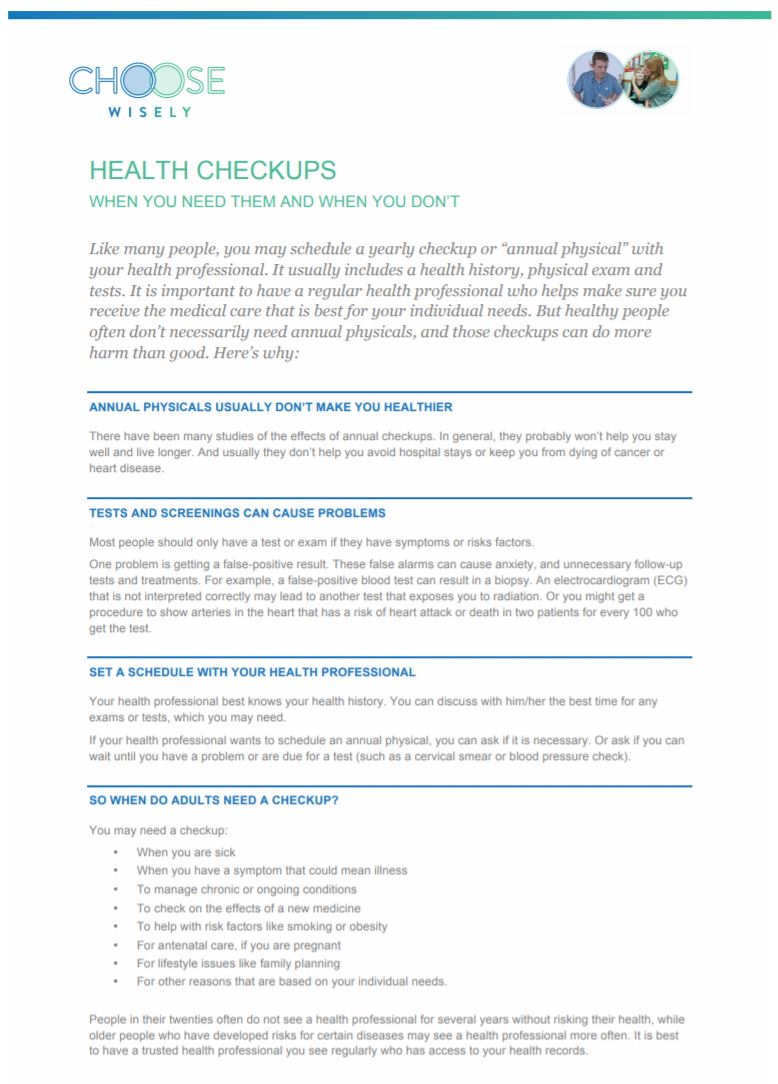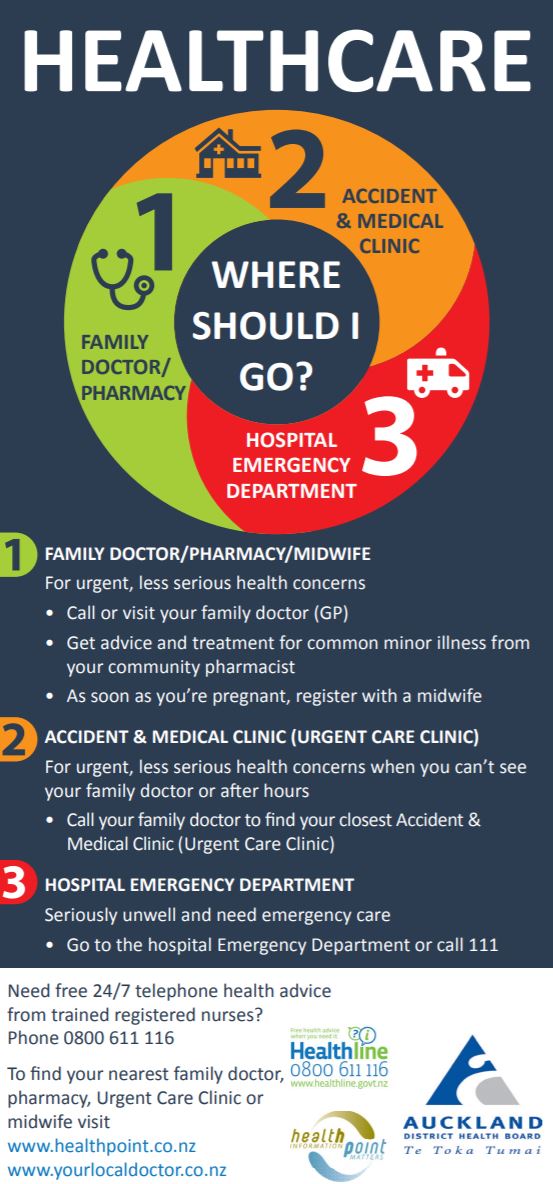Annual physicals usually don’t make you healthier. There have been many studies into the effects of annual check-ups. In general, they probably won’t help you stay well and live longer. And they don’t usually help you avoid hospital stays or keep you from dying of cancer or heart disease.
However, if you have a long-term condition that requires regular monitoring (eg, diabetes, asthma, pain, heart disease) you are likely to need to go, or at least talk to a healthcare provider, more often than annually. This is especially true if you are taking medicines for one or more conditions.
If you are at risk of developing a long-term condition because of your family history or lifestyle you should also be checked regularly. Finding and treating a problem early is likely to lead to a better outcome.
Remember, everyone should get the the available vaccinations and screening tests at the recommended times and frequencies. These can vary depending on your age and ethnicity. Read more about screening and vaccination eligibility to see what is done when and what you and your whānau are eligible for free of charge. Find out more about when, where and how to get vaccinated.








